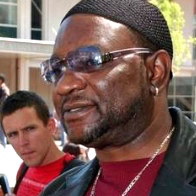Rascals case in brief
In the beginning, in 1989, more than 90 children at the Little Rascals Day Care Center in Edenton, North Carolina, accused a total of 20 adults with 429 instances of sexual abuse over a three-year period. It may have all begun with one parent’s complaint about punishment given her child.
Among the alleged perpetrators: the sheriff and mayor. But prosecutors would charge only Robin Byrum, Darlene Harris, Elizabeth “Betsy” Kelly, Robert “Bob” Kelly, Willard Scott Privott, Shelley Stone and Dawn Wilson – the Edenton 7.
Along with sodomy and beatings, allegations included a baby killed with a handgun, a child being hung upside down from a tree and being set on fire and countless other fantastic incidents involving spaceships, hot air balloons, pirate ships and trained sharks.
By the time prosecutors dropped the last charges in 1997, Little Rascals had become North Carolina’s longest and most costly criminal trial. Prosecutors kept defendants jailed in hopes at least one would turn against their supposed co-conspirators. Remarkably, none did. Another shameful record: Five defendants had to wait longer to face their accusers in court than anyone else in North Carolina history.
Between 1991 and 1997, Ofra Bikel produced three extraordinary episodes on the Little Rascals case for the PBS series “Frontline.” Although “Innocence Lost” did not deter prosecutors, it exposed their tactics and fostered nationwide skepticism and dismay.
With each passing year, the absurdity of the Little Rascals charges has become more obvious. But no admission of error has ever come from prosecutors, police, interviewers or parents. This site is devoted to the issues raised by this case.
On Facebook
Click for earlier Facebook posts archived on this site
Click to go to
Today’s random selection from the Little Rascals Day Care archives….
Click for earlier Facebook posts archived on this site
Click to go to
Today’s random selection from the Little Rascals Day Care archives….
Chandler’s hopes rest with innocence project
May 6, 2013
When last we left Junior Chandler, his former appellate defender, Mark Montgomery, had asked North Carolina Prisoner Legal Services to look into the case.
But NCPLS requires the prisoner himself to request help, and that hasn’t happened. “Like a lot of the old-timers, Junior does not think they (NCPLS) are worth much,” Montgomery says. “There was a big shake up there a few years ago, and they are now very aggressive and as effective as anybody in post-conviction cases. I am going to encourage Junior (again) to ask for their help….”
Meanwhile, he has pitched Junior’s case to Christine Mumma at the N.C. Center on Actual Innocence.
Here’s the essential “evidence of actual innocence” that Montgomery offered Mumma:
“Lathern Hensley (a.k.a. Buddy Norton) was one of the adult mentally retarded riders on Junior’s bus. He and another woman testified that Junior did stuff, and they helped. They each got probation-only plea deals. I found Hensley, but his guardian wouldn’t let me talk with him. The Actual Innocence folks (with powers granted by the state) could insist on talking with Hensley. I think he would say that he was pressured into lying on the stand.”
This is just the latest long shot in overturning Junior’s wrongful conviction, and even if the Center on Actual Innocence agrees to take the case, the process is anything but swift. As the Center’s website cautions, “We counsel patience to inmates and their families during the investigative phase as the process of gathering additional documentation; identifying, locating and interviewing witnesses; and completing many other investigative tasks can take several years.”
Edenton Seven can’t wait forever for exoneration
Sept. 1, 2014
The recent deaths of Little Rascals figures Patricia Kephart Hart (obituary cached here) and C. Harvey Williams remind me that the clock is ticking on the defendants as well. (Patricia Kephart, mother of one of the potential child-witnesses, dated and later married Assistant Attorney General Bill Hart; Williams was Edenton police chief.)
Others who have since died include Kirk Osborn, appellate lawyer for Dawn Wilson, and Bradford Tillery, the judge originally assigned to the case.
Let’s hope that none of the Edenton Seven, still awaiting exoneration from the state, shares the fate of Connie Tindall of the Wilmington 10.
Exoneree ‘eventually got the death penalty’

newsobserver.com
Darryl Hunt in 2007.
March 14, 2016
Darryl Hunt, imprisoned for more than 19 years for a murder he did not commit, was found dead in a car in Winston-Salem early Sunday.
“In 1984 at age 19, Hunt was charged with the rape and murder of a newspaper copy editor….” Read more here.
“Hunt was exonerated in 2004 after DNA evidence led police to Willard Brown, who confessed to the killing, and pardoned by then-Gov. Mike Easley.” Read more here.
He was awarded a settlement of more than $1.6 million in 2007 and founded the Darryl Hunt Project for Freedom and Justice, an advocacy group for the wrongfully convicted.
“But Hunt was also haunted by his experiences, said those who knew him. He would use ATMs daily, not so much to get money but so he could create a time-stamped receipt and an image recording his location.” Read more here.
“The trauma of wrongful convictions, years in prison, and the responsibilities he took on after he was free wore Hunt down, (his longtime attorney, Mark Rabil) said.
“ ‘In the long run, he eventually got the death penalty,’ Rabil said.” Read more here.
– From “Darryl Hunt, wrongly convicted of murder, found dead” by Lynn Bonner in the News & Observer (March 13)
Exoneration – what a beautiful word. Misleadingly beautiful for those who forever bear the wounds of wrongful conviction.
In 2007 a New York Times study of 137 DNA exonerees showed that “most of them have struggled to keep jobs, pay for health care, rebuild family ties and shed the psychological effects of years of uestionable or wrongful imprisonment.
Another study suggests New York state parolees experienced “a 2-year decline in life expectancy for each year served in prison.”
Perhaps most chilling: Darryl Hunt surely ranked as one of exoneration’s most heartening success stories.
![]()
‘Keep telling the defendants’ story’
Dec. 26, 2011
 “When I saw ‘Innocence Lost’ on PBS, I was outraged. The defendants received a bad deal from the state of North Carolina….
“When I saw ‘Innocence Lost’ on PBS, I was outraged. The defendants received a bad deal from the state of North Carolina….
“Thank you for building and maintaining this site. Someone needs to keep telling the defendants’ story. I’m glad to see Mr. Kelly stayed strong and moved on with his life.”
– From South Carolina reader Clarence Lankford
Thanks for writing, Clarence. “Stayed strong and moved on” is an apt description of Bob Kelly. When I called last week to wish him Merry Christmas, he laughed and said, “For me, it’s always Christmas.”











0 CommentsComment on Facebook